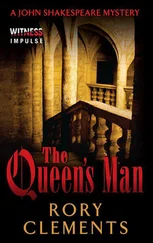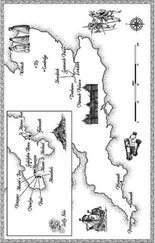Rory Clements - Prince
Здесь есть возможность читать онлайн «Rory Clements - Prince» весь текст электронной книги совершенно бесплатно (целиком полную версию без сокращений). В некоторых случаях можно слушать аудио, скачать через торрент в формате fb2 и присутствует краткое содержание. Жанр: Исторический детектив, на английском языке. Описание произведения, (предисловие) а так же отзывы посетителей доступны на портале библиотеки ЛибКат.
- Название:Prince
- Автор:
- Жанр:
- Год:неизвестен
- ISBN:нет данных
- Рейтинг книги:5 / 5. Голосов: 1
-
Избранное:Добавить в избранное
- Отзывы:
-
Ваша оценка:
- 100
- 1
- 2
- 3
- 4
- 5
Prince: краткое содержание, описание и аннотация
Предлагаем к чтению аннотацию, описание, краткое содержание или предисловие (зависит от того, что написал сам автор книги «Prince»). Если вы не нашли необходимую информацию о книге — напишите в комментариях, мы постараемся отыскать её.
Prince — читать онлайн бесплатно полную книгу (весь текст) целиком
Ниже представлен текст книги, разбитый по страницам. Система сохранения места последней прочитанной страницы, позволяет с удобством читать онлайн бесплатно книгу «Prince», без необходимости каждый раз заново искать на чём Вы остановились. Поставьте закладку, и сможете в любой момент перейти на страницу, на которой закончили чтение.
Интервал:
Закладка:
There were several buildings, scattered over two or three acres and sheltered by trees. Boltfoot understood the need for such a siting: if the powder store exploded, the canopy of trees would muffle the explosion and protect the nearby shipping and dockyards.
Reining in to a slow walk, he rode around the perimeter of the stockaded area. The enclosure was between eight and nine feet high, built of stakes driven into the ground close together to form a palisade. It would be possible to scale with a ladder, unwatched at night. But how good were the guards on the other side?
He approached the front gate, but as he tried to ride on through he was immediately stopped by a pair of sentries. They stepped out in front of him. Both had crossbows at their shoulders, drawn taut, bolts loaded and aimed directly at his chest. Behind them, three ban-dogs in studded collars were leashed to the small guardhouse, slavering and growling.
Boltfoot dropped the reins and put his hands in the air to show he was no threat.
‘I am here on Queen’s business,’ he said. ‘I am to see the keeper.’
The sentries looked like military men to Boltfoot. They were both powerfully built and wore jerkins of hide. They had neat-trimmed beards and bold faces, the sort of men any captain-general would have been happy to have at his disposal. ‘Dismount,’ said one of them, who was slightly taller and more imposing than the other. ‘No sudden movements.’
Boltfoot slowly slid from his horse. He sniffed the air. It was thick with the scent of raw gunpowder.
‘Now the gun. Unsling it. Put it on the ground, gently.’
Again, he did what was required of him, carefully laying the caliver across his arms, his finger well away from the trigger. He bent at the knees and lowered the weapon safely to the turf beneath his feet.
‘Your sword, too, and daggers. All things metal, be they steel or iron. Deposit them by the caliver. Tinderbox, pipe and tobacco, too.’
With an exaggerated lack of haste, Boltfoot obeyed the man.
‘The horse is shod. It’ll have to stay tethered out here. No metal inside.’
The second sentry lowered his crossbow. Boltfoot noticed it was made entirely of wood, apart from the string of gut; even the bolt had a charred and sharpened point, rather than a steel tip. But it was deadly enough, all the same, and would pierce him through if unleashed at that distance. The sentry took the horse’s reins.
‘I understand,’ Boltfoot said.
‘One little spark from a piece of metal on flint. One shod hoof sparking on stone, that’s all it takes and this place will go straight to the heavens and take good men with it. Now then, who are you?’
‘Boltfoot Cooper. My master is John Shakespeare, intelligence secretary to Sir Robert Cecil.’
‘This will be about the Dutch church.’
‘Yes.’
‘Well, we are all a little more wary than usual here.’
‘Are you not always so wary, then?’
The sentry’s blood rose and he pushed forward his crossbow so it was less than a foot from Boltfoot’s heart. ‘Don’t come the cunning man with me, Mr Cooper.’
Boltfoot did not back off, but decided there was nothing to be gained from provoking the sentry further. ‘I have orders to see the mill-keeper, Jeremiah Quincesmith.’
‘Do you have papers?’
Boltfoot put his hand in his jerkin and brought out the letter-patent signed by Shakespeare and Bedwell, warranting him to be received by the keepers of the mills he was to visit and have his questions answered.
The first sentry studied it. ‘Wait here,’ he said, then walked off with the paper, leaving the other guard with Boltfoot. In a few minutes he returned. ‘Follow me.’
Boltfoot looked down at his caliver and cutlass.
‘Don’t worry about that. Mr Willis will look out for your horse and arms.’
‘If they are safe when I return, you will have a groat from me,’ Boltfoot told the second sentry. Reluctantly he turned away from his precious belongings and walked away, dragging his left foot through the dust.
He followed the first sentry to the nearest building, the most substantial of the five. It was constructed of brick and was attached to the great wheel that was turned day and night by the flow of water in a short canal spur carved across the land from the river Thames. The other mill houses were made of timber, daub and wattle with heavy thatching on the roof to keep the contents dry. He knew enough to realise that those buildings would be used for storing the raw ingredients — the grough or crude saltpetre, the charcoal produced by the burners outside the stockade, the sulfur imported from the lands of Italy and elsewhere. The process involved refining and mixing these three components in the correct ratio. The buildings were deliberately flimsy; they would be no loss if the place exploded — and the damage caused by flying twigs and staves would be considerably less than an explosion involving stone or brick.
Boltfoot was taken through to the mill room where he could see the great wheels turning and charcoal and sulfur being crushed by edge-runners of stone.
‘Mr Quincesmith,’ the sentry said. ‘This is Mr Cooper.’
‘Thank you, Mr Amos. You may go.’
Jeremiah Quincesmith was a bull of a man. His chest had the dimensions of a cask and threatened to burst from his drab worsted doublet. The muscles of his arms bulged in his sleeves. He had been talking to the men minding the crushing equipment, but now he looked Boltfoot up and down critically like a muster-master appraising a new soldier and finding him wanting. He brushed his hands together and a dusting of black powder sprinkled to the sawdust floor. He then perused the letter-patent from Shakespeare.
‘Well, Mr Cooper,’ he said. ‘I can understand why your master has sent you here, but you can assure him that we have no leaks. You saw the stockade. Day and night, we have six guardsmen on duty with fighting mastiffs. And all the powder is transported direct to the storehouse in the White Tower by barge under red flag. The powder is weighed out and weighed in. It is a short trip and none has gone missing. This is a well-run establishment, inspected twice a year by officers of the Ordnance Storekeeper. On one occasion last year Mr Bedwell came here himself and complimented us. Does that answer all your questions? I am a busy man. And Mr Sarjent here knows us well.’
Boltfoot suddenly realised there was another man in the room. He was tall and martial, like the guards, with a bristling black beard and eyes that seemed no more than slits. So this was the man who was to accompany him. The man nodded to him in acknowledgement, but Boltfoot did not reciprocate. He turned back to Quincesmith. ‘Where is the vault?’
‘I’ll show you. It’s through here.’ He led Boltfoot out to a thick-walled outhouse, followed by Sarjent. A sentry with a wooden pike and leashed mastiff stood guard. The vault had a heavy oaken door and a series of black-painted bolts, all of which were on the outside so that no metal was on the inside, close to the powder.
‘If not from here, Mr Quincesmith, whence did the Dutch church powder come?’ Boltfoot asked after looking inside the room at the pile of black powder awaiting casking.
Quincesmith smiled as he relocked the door. ‘Have you been a soldier, Mr Cooper? You are a poor sort of man with your crippled foot, but you look strong enough otherwise. And at least you stand as straight as you can, not scratching your balls like the levies of thieves and rogues that captains must accept as foot soldiers in these wars. I like the look of you.’
‘I was at sea.’
‘Against the Armada? Are you a cooper, as your name implies? We need good coopers here. You’d have to learn to hoop the kegs with osier, like water butts, not steel. Copper’s safe, too. Do you work with copper? The pay is good.’
Читать дальшеИнтервал:
Закладка:
Похожие книги на «Prince»
Представляем Вашему вниманию похожие книги на «Prince» списком для выбора. Мы отобрали схожую по названию и смыслу литературу в надежде предоставить читателям больше вариантов отыскать новые, интересные, ещё непрочитанные произведения.
Обсуждение, отзывы о книге «Prince» и просто собственные мнения читателей. Оставьте ваши комментарии, напишите, что Вы думаете о произведении, его смысле или главных героях. Укажите что конкретно понравилось, а что нет, и почему Вы так считаете.












